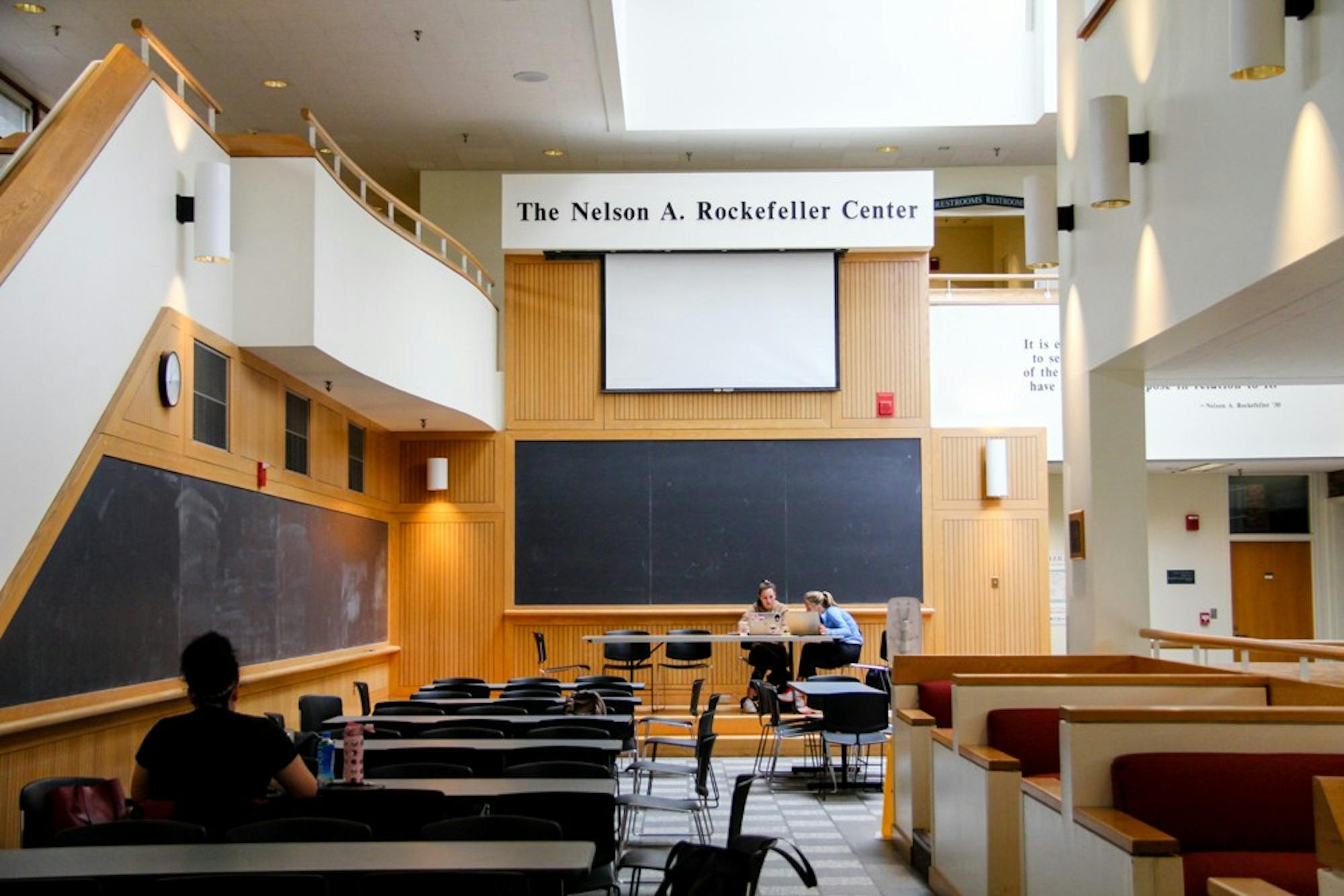“Pretty much any contemporary problem is going to be better understood in a multidisciplinary context,” said public policy professor Charlie Wheelan, one of three professors co-teaching GOVT 68, “The Future of Capitalism” this term. The course is taught by professors of three different academic specialties — government, economics and public policy — and takes advantage of its unique teaching set-up to explore the pros and cons of capitalism through the lens of multiple disciplines.
Economics professor Douglas Irwin and government professor Russell Muirhead were initially inspired to teach a multidisciplinary class on the future of capitalism over a decade ago, when they both saw an Occupy Wall Street protest on the Green, according to Irwin. He recalls discussing the differences in economic and governmental approaches to issues like the Occupy Wall Street movement, the Tea Party movement or the protests stemming from the financial recession. This made him realize that there was little existing framework to facilitate discussion about the “big questions that intersect between politics and economics.”
“Our majors were ill-equipped to have a discussion about the system that we’re in,” Irwin said. “So we thought we should have a course that would sort of bring the two departments together and talk about these issues and bring different perspectives to bear on capitalism and its future.”
Muirhead also said that the 2008 financial crisis prompted him to seek a framework to explore issues like the recession through an economic perspective.
“I wanted to understand [the recession] as an economist would understand it. I could kind of understand it as a student of government, or a student of political theory might understand it,” Muirhead said. “It looked like something unfair was going on … and I needed to know whether economists thought that was the right way to run an economy.”
Later, Wheelan joined the teaching team, making GOVT 68 one of the few courses to be co-taught by not two, but by three professors. In addition to the economic and governmental expertise, Irwin said that Wheelan “brings more of a policy angle” to the class discussion, with insight as to “what we can actually do” to solve problems.
Scotty Tamkin ’22, a student in the class, said that in a typical class, one of the three professors will initially prepare a lecture or the class will listen to a guest speaker. However, the lectures are not confined to the material on the lecture slides; Irwin emphasized that the lectures are not intended to be prescriptive, but to spark debate.
“We’re not providing answers in the class, we’re just providing a forum for informed discussion of the question,” Irwin said.
Debate is a central tenet of the course; while one professor might be leading a lecture, Irwin said that the professors will disagree and “bicker a lot” during a class. This interaction and live debate between professors sets GOVT 68 apart from other courses, according to Wheelan. He said most classes which involve co-professors have less interaction between instructors, while GOVT 68 engages all involved professors thoroughly.
“[The three professors] are all in the room all the time … it’s fun to be in the room and to ask the first question — to say, ‘[Muirhead], that just doesn’t make any sense.’ And I think that empowers students to be skeptical,” Wheelan said.
Students like Tamkin have found these debates between professors to be a valuable learning tool. Tamkin is a Government major with little experience with Economics, and he has enjoyed hearing professors provide insight from disciplinary angles he is less familiar with.
“What's really interesting is getting a lecture from a [government] prof like Professor Muirhead … then I’ll ask Professor Irwin to chime in and we'll have some economic background and everyone else does as well,” Tamkin said. “Hearing them banter … we get the economic perspective. The economist’s perspective is definitely really interesting and I think it enriches the experience.”
Muirhead said he likes that the class provides the professors with an experience of “being a student … of being interrupted by an equal, of being contradicted, of being questioned.” He says he values the intellectual “challenges” these interactions provide.
“I don’t have a doctrine, and I don’t have a set of conclusions that I'm just selling,” Muirhead said. “So, I think that openness and curiosity are what make my colleagues so interesting to me and what makes the class so new to me,”
Both Muirhead and Irwin both expressed an overall goal to challenge students’ preconceptions of capitalism with their course.
“If you like capitalism, we hope you see some of the downsides. And if you don’t like capitalism, you can see some of the advantages. So we don’t want to tell students which is good and right ... but we just want to open up people’s minds about different alternatives, and the pros and cons of various approaches,” Irwin said.
In addition, Muirhead hoped that the course was able to equip students without preconceived opinions on capitalism with the necessary information to form views on the subject.
“I hope those with opinions become less opinionated and those without opinions become more opinionated, and that everybody's opinions become more thoughtful,” Muirhead said.
Wheelan hopes the class empowers his students to become “more informed voters and citizens,” who are able to apply the knowledge to improve their society.
“Students are going to have a stake in building the society that they want, so I think it matters a lot that they understand how economics works, that they have an appreciation for what's happening in the world, that they think deeply about what is fair and what is unfair, and they take all that out and hopefully improve society,” Wheelan said.
Arielle Feuerstein ’24 is an English major from Bethesda, Maryland. She currently serves as the production executive editor, and in the past, she wrote and edited for Mirror. In addition to writing, Arielle enjoys crocheting, board games and walks around Occom Pond.




